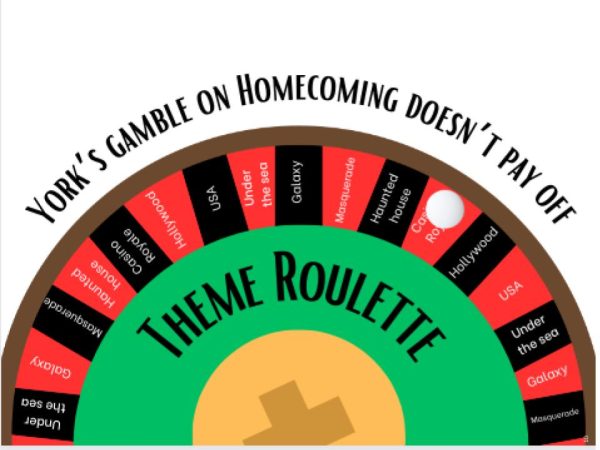A case for standards-based grading
While there may be a slew of discussion involved with the way students are graded at York, one system has always stood out to me: standards-based grading, or SBG.
This is the point while reading that some of you will probably scream to your English class, “ISN’T THIS THE THING THAT DOESN’T LET ME GET A 100%?!?!” (angrily throws desk).
To answer your question simply: yes… and no.
But allow me to tell you why a standards-based grading scale is truly the way to go. Also, pick up your desk, your teacher isn’t your mother, you know.
When being graded on standards, room for growth and improvement is written into your grade. This allows a student to fail and then succeed, demonstrating knowledge of content and skills rather than meaningless point values.
Standards-based grading actually becomes a helping hand for students, separating actual learning grades–tests, quizzes, and projects–from grades that are purely done for completion–homework and timeliness.
We have all been a victim of losing half of our grade on a 20- or 30-point project just because we turned it in the morning after it was due, as opposed to deadline that was the day prior.
While you may have received a 21/20 (yes, that is an extra credit point) and been asked by the teacher to use your project as an example, your grade is made an “F” for the simple reason that “you should have been more responsible.”
In the world of standards-based grading, it is the actual achievement and display thereof that makes a significant impact on your final grade, giving weight to an otherwise meaningless grade.
“Every course has standards, and we should be able to see that students are meeting them,” said Mrs. Megan Ewald, chemisty teacher and educational doctorate candidate.
The process that SBG follows is very basic: objectives for each lesson are written and then students are given assessments periodically.
A common form of this is in your English class: a skill or objective, like organization or close analysis, is introduced; then the next three to four essays you write will give a grade of highly proficient, proficient, developing proficiency, or not yet proficient. Finally, then your teacher will be able to assess if students actually gained knowledge in the specific content area–you know, the purpose of school.
And let’s say your paper is a few days late, only your behavior grade suffers–not your academic skill grades, which have a much higher weight.
York continues to evolve and incorporate this system into its curriculum. Hopefully we earn above a developing proficiency.

Matt Bourke, senior, is the ThisIsYork.org Editor at York. In his limited free time, Matt works with YTV and York-hi, serves as President of the Illinois...












